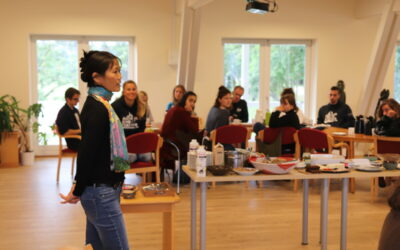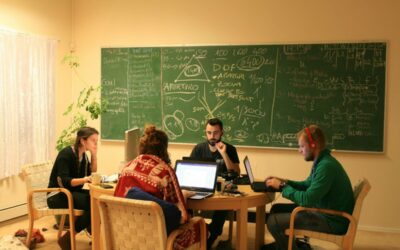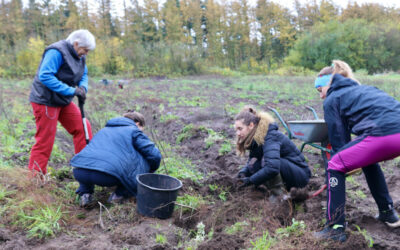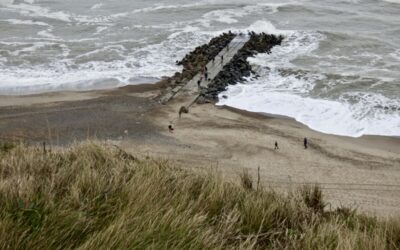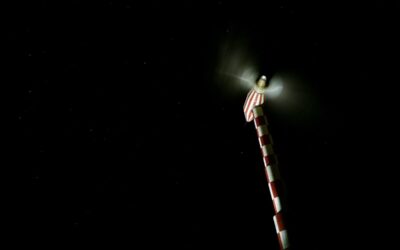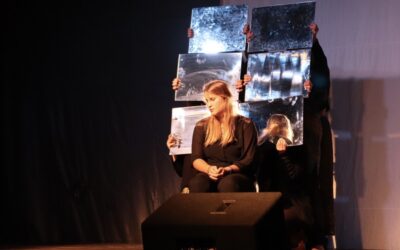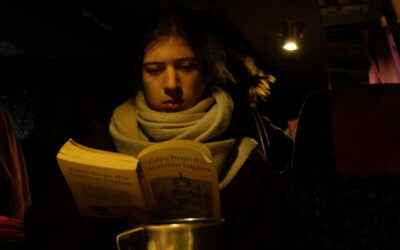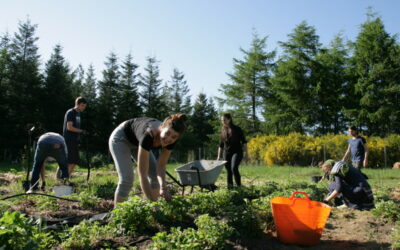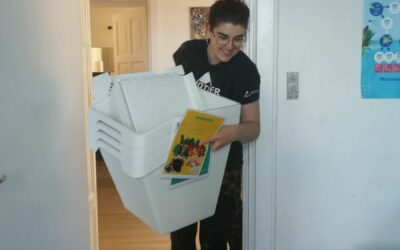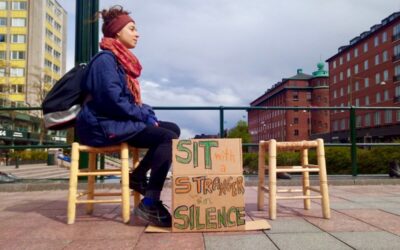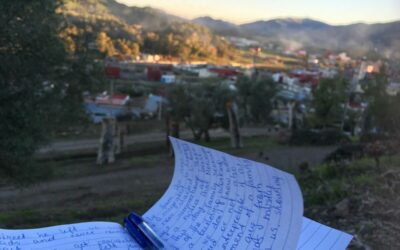It is through weekly common meetings that we run and govern our school. Here’s why they are so important to our lifestyle and pedagogy here at DNS Tvind!

Transforming Education with these 5 unconventional Teaching Methods
These are five unconventional teaching methods – or learning, if you prefer – drawn from the experience of our Bachelor Programme in Alternative Education. We hope they’ll inspire you to approach learning for what it is – an engaging and fulfilling activity, at its core.
Student experiences: “We need intergenerational collaboration to face the Climate Crisis”
Intergenerational projects – like combining kindergarten and old age homes under the same roof – are showing us an enlightening new approach to planet protection.
Student experiences: “The white noise around Climate Change”
Information about Climate Change is vastly available – yet there is little we understand and act upon collectively. Are we educated enough to face the upcoming crisis? And do we need a new vocabulary to better understand and interpret this major issue?
Student experiences: “What really causes Climate Change”
What are the causes of climate problems? How does the global warming work? What are all the things that humans do that negatively affect the climate, and how do they compare? What are some potential solutions to these problems, and how should they be addressed?
Three examples of “Learning by Doing”
What does ‘Learning by Doing’ mean? In this article, we explain how this method can be applied to different learning contexts through 3 examples.
Epistemology in Teaching and Learning
Epistemology is one of the subject our students come across at our Teacher Training College. Why should a teacher learn about Epistemology, and what is the connection between this discipline and education?
Why was planet protection left to activism?
The Earth is changing; our environment is dying. If one of the primary roles of education is to equip people with the knowledge to make a positive difference in society, why is Planet Protection most often not included in schools’ curricula? Why is it regarded as something individual activists need to take care of?
The footprints of Teaching Practice
DNS 2017, the senior team, is now finalising one of the last periods of DNS programme: Teaching Practice. Teaching Practice lets us experiment in the reality of the classroom, apply teaching methodologies and most importantly, make mistakes and learn from them. However, teaching practice doesn’t end after the lessons. We also contribute to the teaching practice place by being in charge of the programme in the school and initiating a chosen project, our “Footprint”.
European Reality from the eyes of a DNS student
European Reality is a 6-months period, part of the second year of the DNS programme, during which the team moves to a bigger European City with the goal to find jobs, a House, learn about the European working class’ way of living, and get involved in the city’s cultural life. In this article, you can hear Laura from DNS17 expressing her view on the educational value of experiencing such a period!
There are too many things I want to learn and share: being a teacher combines both – Svetlana, alumni and DNS Teacher
To choose the path of teaching took me some time, I must say. It started on my very first 1st of September, this is the day when the school year starts in Lithuania. I simply loved it. And I am not talking about the lessons and tests, but about all the kinds of people I got to interact with and about the learning process that was happening there, somehow in between lessons most of the time. Though I was in love with the school and Summer holidays always seemed too long of a break, I never thought I will become a teacher. It is now, when I reflect, I see lots of sense in my actions and choices that led me to choose this profession.
6 ways to keep learning during a lockdown
6 ways to keep learning during a lockdown The COVID-19 outbreak forced many of us into quarantine — as we know, lockdowns are a good strategy to slow down the spread of the virus. But having to practice social distancing doesn’t mean that our lives are just paused:...

